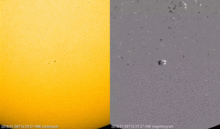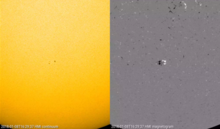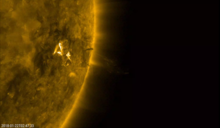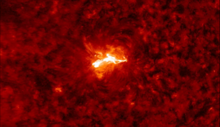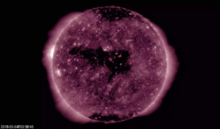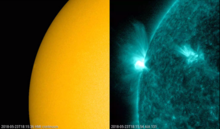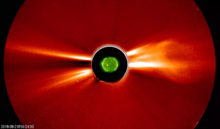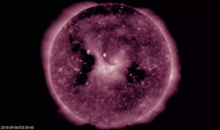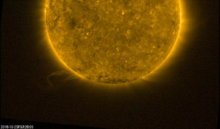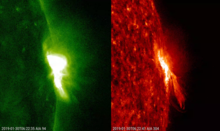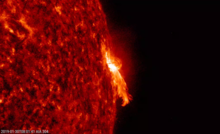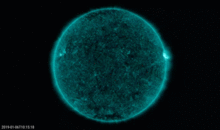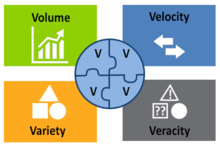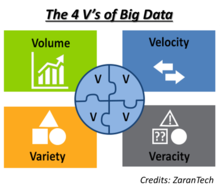news
Submitted on 2019-04-02
Cosmic rays and energetic particles are an issue for humans in high altitude polar flights, humans travelling in space, space technology, radio communication near the Earth poles and more. No need to say that these particles need our attention.
Submitted on 2019-03-27
The Journal of Space Weather and Space Climate (JSWSC) has opened a new Topical Issue entitled "Scientific Advances from the European Commission Horizon 2020 projects on Space Weather".
Submitted on 2019-03-22
8 enthousiast meteo operators followed the STCE course to get transformed to a space weather operator. From March 14 onwards, they carry the title 'Trained and certified space weather operator'. The STCE space weather bulletin has no secrets anymore.
Submitted on 2019-03-06
Ground Level Enhancements: what are they, what impacts do they have on us and our technology, and when during the solar cycle do they generally occur?
Submitted on 2019-03-01
No sunspots sliding from left to right, no sunspots popping up. February 2019 was almost the first spotless month since a decade. Almost, because the exercise done each first of a month to calculate the sunspot numbers of the previous month, the World Data Center for the sunspot number, put the provisional daily sunspot number on February 13 and 11 not to zero.
Submitted on 2019-02-12
A compilation of the most memorable space weather moments of 2018, featuring data, links and movies.
Submitted on 2019-02-07
Solar Orbiter, due for launch in 2020, is an ESA mission to perform close-up, high-resolution studies of our Sun and the inner heliosphere. The spacecraft has been tested in the thermal-vacuum chamber at the IABG test facility in Ottobrunn, Germany.
Submitted on 2019-01-30
NOAA 2733 was a relatively small region that managed to produce two C5 flares: C5.0 on 26 January, and C5.2 on 30 January. These were the strongest flares since the C8 flare produced by NOAA 2699 on 7 February 2018.
Submitted on 2019-01-16
The Sun produced a C1 flare on 6 January. This is the first C-class flare since 6 July 2018.
Submitted on 2019-01-10
The Journal of Space Weather and Space Climate (JSWSC) has opened a new topical issue on "Space Weather research in the Digital Age and across the full data lifecycle".
Pages
Zircon - This is a contributing Drupal Theme
Design by
WeebPal.














